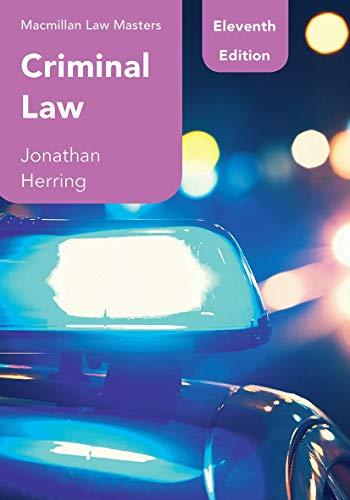Question
Glen and Mytle Goodman faced bankruptcy and foreclosure on their home.Mark Calaico, a real-estate agent, would often arrange for Henry Smith, a house flipper, to
Glen and Mytle Goodman faced bankruptcy and foreclosure on their home.Mark Calaico, a real-estate agent, would often arrange for Henry Smith, a house "flipper," to purchase homes on the brink of foreclosure at an inflated price.The homeowners would execute a second mortgage in favor of Smith amounting to the difference between the purchase price and the amount owed.
Immediately after the sale the seller would repay the second mortgage given to Smith.Smith used this money to rehabilitate the house and then sell it for its then (much higher) market value.The sellers would lose any equity that had been built up in the home but would avoid the black mark of foreclosure on their credit records.
The Goodmans had already begun the bankruptcy process; therefore, any sale of their home needed to be approved by the bankruptcy trustee.The trustee smelled something fishy in the proposed transaction and, after investigation, Smith and Calaico were charged with criminal fraud.
Calaico argued that the second mortgage by which Smith received the excess purchase funds was a valid document, duly recorded and binding on the sellers.Was Calaico correct?
Step by Step Solution
There are 3 Steps involved in it
Step: 1

Get Instant Access to Expert-Tailored Solutions
See step-by-step solutions with expert insights and AI powered tools for academic success
Step: 2

Step: 3

Ace Your Homework with AI
Get the answers you need in no time with our AI-driven, step-by-step assistance
Get Started


